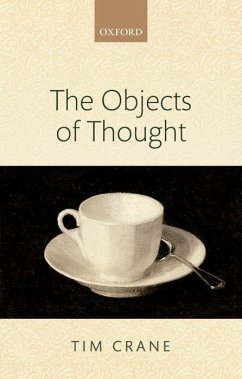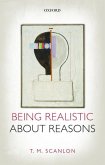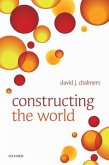The Objects of Thought addresses the ancient question of how it is possible to think about what does not exist. Tim Crane argues that the representation of the non-existent is a pervasive feature of our thought about the world, and that we will not adequately understand thought's representational power ('intentionality') unless we have understood the representation of the non-existent. Intentionality is conceived by Crane in terms of the direction of the
mind upon an object of thought, or an intentional object. Intentional objects are what we think about. Some intentional objects exist and some do not. Non-existence poses a problem because there seem to be truths about non-existent intentional objects, but truths are answerable to reality, and reality contains
only what exists. The proposed solution is to accept that there are some genuine truths about non-existent intentional objects, but to hold that they must be reductively explained in terms of truths about what does exist. The Objects of Thought offers both an original account of the nature of intentionality and a solution to the problem of thought about the non-existent.
Hinweis: Dieser Artikel kann nur an eine deutsche Lieferadresse ausgeliefert werden.
mind upon an object of thought, or an intentional object. Intentional objects are what we think about. Some intentional objects exist and some do not. Non-existence poses a problem because there seem to be truths about non-existent intentional objects, but truths are answerable to reality, and reality contains
only what exists. The proposed solution is to accept that there are some genuine truths about non-existent intentional objects, but to hold that they must be reductively explained in terms of truths about what does exist. The Objects of Thought offers both an original account of the nature of intentionality and a solution to the problem of thought about the non-existent.
Hinweis: Dieser Artikel kann nur an eine deutsche Lieferadresse ausgeliefert werden.








